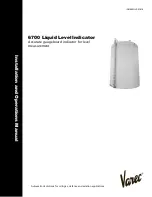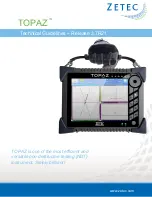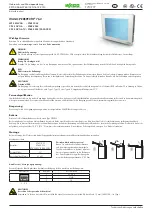
Mini Link Hydraulic System Operations Manual
Page | 21
32. Set the Start/Stop Switch to the
START
position to start the hydraulic pump and motor.
Note
By connecting a couple of fittings and some poly tubing via the ratio block to
the front of the dispense gun, the two components can be
returned to the tanks or source without the risk of
contamination.
33. With the ratio block attached to the gun head, turn the Rate Control Dial
clockwise to begin cycling the pumping system.
34. Once a steady stream of both A & B materials is flowing, note if any fluid
pressures are reading for both materials.
35. If no fluid pressure is reading, increase pump speed.
Note
For gravity fed container systems, very little fluid pressure is
required for ratio checks, but the fluid gauge needle should come off its stop
even if an exact reading is not obtainable.
36. Turn the Mode Selector switch to
RECIRC.
37. The dispense gun valve rod closes and the recirculation gun valve rod opens, returning the
materials to the source tanks. When using the ratio block, the two materials remain separate
and no solvent flush is required at this time.
38. Turn the Start/Stop Switch to
STOP
or turn the Rate Control Dial to zero to stop
recirculating.
Setting Pump Ratio
The resin pump (pump A) is normally fixed at the longest pump stroke length and is not used for
adjusting ratio changes.
The hardener pump (pump B) is used to set the proper ratio by loosening the cap screw and
sliding the upper and lower slide clevis at the top and bottom of the metering pump in the slotted
track to the desired setting, then tightening the cap screw. The indicator stickers on the top and
bottom of the slotted track are used for a reference when setting ratios.
1. If during priming a fluid section shows no pressure because of a very low viscosity material,
add a smaller diameter hose onto the ratio block to restrict the flow and increase fluid
pressure.
Note
To set the ratio, an accurate scale or volumetric beakers are needed.
2. Turn the Mode Selector switch to
GUN
, allowing both materials to begin flowing out of the
ratio block.
3. Slide two pre-weighted containers under the resin streams.
4. Allow no less than 10 pump reversals before removing the containers.
5. Turn the Mode Selector switch to
RECIRC
.
6. Weigh the materials and subtract the container weights to find the ratio.
Figure 3. Ratio Block





































